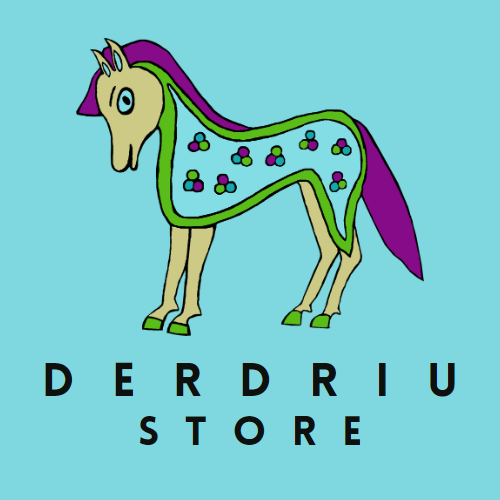
The History of Irish Names
Share
Irish first names and family names (surnames) were generally derived in the Irish language and later translated into English, either by phonetic transliteration or by translating the meaning, or finding a nearest equivalent English name. In more recent times there has been a revival in the use of original Irish forms of names, including the síneadh fada (or accute accent) on vowels.
For example, Ailbhe is a traditional Irish name, which is pronounced "al-va", is gender-neutral and means "bright and noble". In the masculine case it can be used as an Irish equivalent for Albert and Albie, and in the feminine case it can be Irish for Alba, Alva or Avianna.
Aisling is another traditional Irish name meaning "dream" or "vision", and is pronounced "ash-ling". Aisling has become a widely popular name in the original Irish spelling, and can also be an Irish version of Ashley, Ashleigh or Dream.
Sometimes Irish names were transliterated from other languages into Irish. For example, Siobhán is an Irish name which is derived from Anglo-Norman names Jehane and Jehanne (like the modern-day Joan and Joanne). Siobhán has become popular, even outside Ireland, with the Irish spelling, but is sometimes phonetically written in English as Shavawn, Shevaun or Shivaun.
Caoimhín is the original Irish form of Kevin, and means "handsome", "dear" or "noble", and is pronounced "kee-veen" or "qwee-veen". The Irish spelling for this name is usually only used in Ireland, however Kevin is a hugely popular name internationally.
The Irish name Dónal (pronounced dow-nuhl), also written Domhnall, means “world ruler”, and is sometimes anglicised to Donald, and considered an equivalent of Daniel.
Cinnéide is a traditional Irish surname and which may mean "helmeted" or "head-dressed", and is pronounced "kin-ayd-juh". The English phonetic transliteration is the famous name Kennedy, which is also now a popular first name.
In 2022 in Ireland the most popular Irish names for baby boys were Rían, Oisín, Tadhg, Liam, Cillian, Fionn, Conor, Darragh, Seán and Cian. For baby girls the names were Fiadh, Éabha, Saoirse, Caoimhe, Aoife, Róisín, Sadhbh, Cara, Erin and Croía.
All of these names and more are available on personalized gifts in the brand Derdriu Celtic Names on derdriustore.com
Most Irish surnames are derived from a common ancestor, and are termed patronymic names. The most common original Irish forms of surname are preceded by Mac (meaning “son”) or Ó (meaning “descendant”). For example, the name McGrath comes from “Mac Craith”, which means “son of grace or good fortune”. The name Ó Dónaill literally means "descendant of Dónall” and can be anglicised as O’Donnell or just Donnell.
There is a female form of surname where Ó is replaced with Ní (from Iníon Uí meaning “descendant's daughter”) and Mac with Nic (from Iníon Mhic meaning “son's daughter”), for example Nic Craith for McGrath and Ní Dhónaill for O’Donnell. When a woman marries, she may choose to take her husband’s name, and in Irish this is specified as “wife” (bean in Irish, which is pronounced “ban”) as opposed to daughter (iníon, pronounced “in-een”). For example, Mrs McGrath would be “Bean Mhic Craith”, and Mrs O’Donnell would be “Bean Uí Dhónaill”.
In the 12th century the Normans came to Ireland and brought names with other prefixes such as “de” meaning “of”, for example de Búrca (or Burke), and “fitz” meaning son (“fils” in French) whereby, for example, the Irish name Mac Gerailt (Son of Gerald) would be translated to FitzGerald.
There are other variations of Irish prefixes such as Mac Giolla (which means "servant's son") or Ó Maoil (which means "follower's descendent"). For example, Mac Giolla Eóin (meaning son of servant of St John) which can be anglicised to Malone, and Ó Maolaodha (meaning descendent of servant of St Aedh), which can be anglicised as O’Malley.
Today the most common Irish surnames are Murphy, Kelly, O’Sullivan, Walsh, O’Brien, Byrne, Ryan, O’Connor, O’Neill and O’Reilly.
